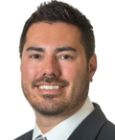Self-Esteem
Why Do Young Gay Men Try to Be the Best?
A new study tests the "best little boy in the word" hypothesis.
Posted April 17, 2013
One stereotype of gay men is that they are all fit, well dressed, good looking, and rich. Of course this isn’t true of all gay men, but the stereotype does emerge from the many gay men that seem to put inordinate effort into making themselves perfect in every achievable way—spending a lot of time at the gym, at work, or striving for the best grades in school. I have often wondered what drives these ambitions and what are the psychological costs of striving for perfection? Two of my colleagues recently published a paper exploring these questions and I asked them to write a guest blog explaining their study. What follows is a guest blog by Dr. John Pachankis of Yeshiva University and Dr. Mark Hatzenbuehler of Columbia University.

Recent research reveals why the phrase "the best little boy in the world" aptly describes so many young gay and bisexual men. The phrase derives from the eponymous novel published in 1973 by Andrew Tobias, a classic coming out narrative, in which the author recounts his efforts to overcompensate for and evade detection of his nascent sexual orientation by excelling at seemingly everything. Since the publication of Tobias' memoir, numerous gay authors, therapists, and public figures have harnessed the "best little boy in the world" theme to describe their own formative experiences of presenting an infallible facade to guard the personal secret of their sexual orientation.
For example, former New Jersey governor Jim McGreevy in his memoir, The Confession, writes about how the hostilities of his childhood environment forced him to conceal his sexual orientation and avidly seek status and achievement instead of same-sex love. He writes, "I think I decided that my ambition would give me more pleasure...than true love." Author Paul Monette in his autobiographic account, Becoming a Man, describes submerging his gay identity through excelling at school work. Journalist Andrew Sullivan in his cultural commentary, Love Undetectable, similarly describes "appeasing my anxiety by perfecting every nook and cranny of my academic requirements." All describe their personal striving to be "the best" in order to cope with their perception of the identity-tarnishing stigma of being gay. The evidence for this phenomenon extends to clinical accounts of gay male development as well. Psychiatrist Richard Isay writes in Becoming Gay that young gay men are forced to become reliant on their own internal resources because approval from others is not guaranteed. Clinical psychologist Alan Downs poignantly discusses the phenomenon of gay men going to great lengths to present an infallible facade to mask their secrets in his clinical account, The Velvet Rage. For example, he notes, "We survived by learning to conform to the expectations of others… How would we love ourselves when everything around us told us that we were unlovable? Instead, we chased the affection, approval, and attention doled out by others." Finally, in the Best Little Boy in the World, Andrew Tobias notes his early tendency to stave off rejection of his sexual orientation through his academic accomplishments, "Another important line of defense, the most important on a practical day-to-day basis, was my prodigious list of activities…No one could expect me to be out dating…when I had a list of 17 urgent projects to complete."
As clinical psychologists and public health researchers, we too noticed that "the best little boy in the world" phenomenon seemed to elegantly explain the strategies used by so many young gay men whom we encounter in our personal and professional lives. Given all the theorizing, story-telling, and personal observations documenting this phenomenon, we were surprised that no one had ever empirically studied the supposed tendency of young gay men to cope with the early, isolating awareness of their sexual orientation by striving to be "the best" and the potential psychological costs of this striving. We therefore set out to empirically document "the best little boy in the world" phenomenon.
We wondered whether, consistent with "the best little boy in the world" narrative, young gay men would be particularly likely to invest their self-worth in those life domains in which they are particularly likely to succeed despite being stigmatized. For example, since young gay men cannot be assured of family support, peer approval, or God's love as long as they hide their sexual orientation from everyone, it may be wise for them not to invest their self-worth in those life domains. Success in these domains cannot be controlled and guaranteed when one is gay, unlike success in academics, good looks, and being the best at competitive tasks, which are relatively more controllable and guaranteed, with at least some effort. In fact, being good in academics, looking dapper, and attaining status may be one way to stave off detection of one's sexual orientation or to compensate for any rejection if a young gay man's sexual orientation gets discovered.
Rather than suggesting that gay men possess some innate tendency to be the best dressed and most accomplished, we proposed that these tendencies would be products of the social environment in which gay men are raised. Even today, some early environments are so unwelcoming for gays and lesbians that adolescents who recognize that they have romantic or sexual feelings toward members of the same sex and who live in homophobic places may conceal their sexual orientation from everyone--parents, teachers, friends--for many years. Growing up in unwelcoming places and hiding an essential part of oneself for an extended period of time is bound to come at a cost. We proposed that this cost is having to invest one's self-worth in life domains that can be controlled and guaranteed, at least more so than family support, peer approval, or God's love. We also proposed a further cost, namely that the greater the degree to which young gay men invest in these achievement-related domains, the greater the lengths they would go to assure success in them, even if in unhealthy ways, such as isolating oneself, eating too much or too little, or lying and getting into arguments with others.
To test "the best little boy in the world" theory, we asked 136 gay and 56 straight college students to indicate the degree to which they invested their self-worth in seven different life domains. We asked the gay participants to indicate the age at which they first became aware that they were gay and the age at which they first told another person that they were gay, so that we could determine the length of time that each gay participant was completely closeted. We also asked gay participants to indicate the state in which they attended high school so that we could calculate the degree of non-acceptance of lesbian and gay people in those states at the time that participants were initially forming a gay identity. We then followed participants every day for nine consecutive days by asking them to indicate the degree to which they engaged in unhealthy habits each day, such as being socially isolated, eating too much or too little, lying to others, and getting into arguments.
Our research showed that young gay men strategically invest their self-worth in those areas in which they can succeed, namely academics, appearance, and competition, more so than straight men. Essentially, it seems as if young gay men go to great lengths to prove their worth to others in those domains. This is particularly likely for those who concealed their sexual orientation for long periods of time when growing up and for those who grew up in more stigmatizing states. Our results also showed that being "the best little boy in the world" comes at a cost, as young gay men who invested in these status-related domains were more likely to spend more time alone, to report more daily eating problems, getting into arguments and lying to others, and to feel more stress each day.
Our research may help solve the puzzle of why several large studies have shown that, on average, gay men's self-esteem is not any lower than straight men's self-esteem, despite facing greater adversity. Our findings uncover the strategies that young gay men might use to protect their self-esteem against threat. Similar to African American college students who are particularly likely, for example, to base their self-esteem in God's love and thereby protect their self-esteem, the young gay men in our study were particularly likely to base their self-esteem in status-related domains. Importantly, like the authors of "best little boy in the world" narratives, the participants in our study were mostly white, middle class, college-educated men. The extent to which possessing multiple stigmatized identities might shape self-worth remains to be seen, as does the extent to which this or a similar phenomenon applies to women.
Our research also reveals some important lessons for young gay men's health and well-being. The results of our research suggest that gay men take careful stock of the extent to which their self-worth derives from seeking status from domains like being the best, looking the best, or earning high grades or lots of money. If gay men do recognize that their self-worth comes from those domains, they might consider the health costs of doing so. Do they experience trouble in relationships with others, such as frequent arguing or spending lots of time alone? Will they compromise personal values to attain status? Are they chronically stressed or engaging in unhealthy habits, like going to the gym to an unhealthy degree or restricting their food intake? If gay men answer "yes" to any of these questions, it will first be important to recognize that these difficulties are not personal failings and may have their source in stigma and the early lessons learned from growing up in a stigmatizing world. Psychotherapy with a compassionate, gay-affirmative therapist can help gay men understand the legacy of experiencing early stressors like hiding one's sexual orientation during adolescence or growing up in homophobic environments. For many gay men, the negative effects of these early experiences may not be obvious at first, but can nonetheless be successfully addressed with supportive help from friends or professionals.
In conclusion, our recent research reveals the ways in which many young gay men display impressive resilience in the face of challenges inherent to managing a stigmatizing, personal secret in isolation from an early age. Rather than being passive victims of stigma, young gay men show ingenious ways to preserve their self-esteem despite threats to it. Seeking self-esteem through being "the best" represents a creative adaptation to stigma, albeit one that may eventually come at a personal cost, especially if the strategy has outlived its original usefulness.
Reference:

Pachankis, J. E., & Hatzenbuehler, M. L. (2013). The social development of contingent self-worth among sexual minority young men: An empirical test of the "Best Little Boy in the World" hypothesis. Basic and Applied Social Psychology, 35, 176-190. DOI:10.1080/01973533.2013.764304
About the Contributing Bloggers.

John Pachankis, Ph.D., is an Assistant Professor of Psychology at Yeshiva University. He received his Ph.D. in clinical psychology from the State University of New York at Stony Brook in 2008 and completed his clinical psychology internship at Harvard Medical School / McLean Hospital. His research seeks to identify the ways in which stigma leads to poor mental health outcomes within lesbian, gay, bisexual, and transgender (LGBT) populations and to develop and disseminate effective health interventions to improve the health of the LGBT community. His research is currently funded by the National Institute of Mental Health and the National Institute on Drug Abuse and has received several awards from the American Psychological Association. In addition to his academic training and research experience, throughout his career John has been actively involved in the development and delivery of health initiatives within LGBT community-based settings. In summer 2013, John will join the faculty of the Social and Behavioral Sciences division of the Yale School of Public Health where he will continue his research on LGBT health interventions.

Mark L. Hatzenbuehler, PhD, is Assistant Professor of Sociomedical Sciences at Columbia University. He completed his doctoral degree in clinical psychology at Yale University and was a Robert Wood Johnson Foundation Health & Society Scholar at Columbia. Dr. Hatzenbuehler's research examines how structural forms of stigma increase risk for adverse health outcomes among members of socially disadvantaged populations, with a particular focus on lesbian, gay, and bisexual individuals. His research has been published in several leading journals, including the American Journal of Public Health, Psychological Bulletin, and Pediatrics. Dr. Hatzenbuehler's research has received multiple awards from the American Public Health Association and the American Psychological Association, has been widely covered in the media, including television, radio, and print interviews, and has been cited in court cases on sexual orientation-related discrimination. Dr. Hatzenbuehler is currently being funded on a K01 award from the National Institute on Drug Abuse to study social determinants of substance use and other health outcomes among sexual minority youth.
About the Sexual Continuum Blog
Dr. Mustanski is the Director of the IMPACT LGBT Health and Development Program at Northwestern University. You can follow the Sexual Continuum blog by becoming a fan on Facebook. He periodically live tweets from research conferences on sexuality and you can follow him @sexualcontinuum.
Photo Credit
Title: Boy! I sure did a good day's work today!
Creator: Office for Emergency Management. War Production Board. (01/1942 - 11/03/1945)
Source: U.S. National Archives and Records Administration




